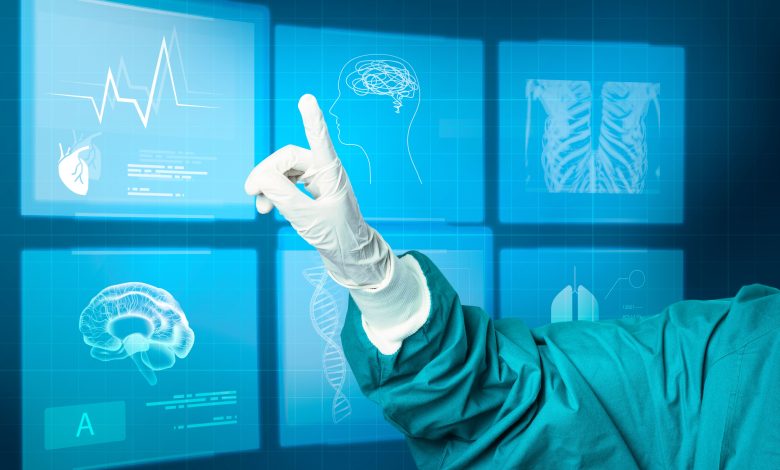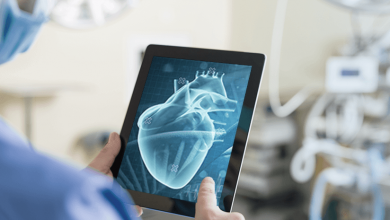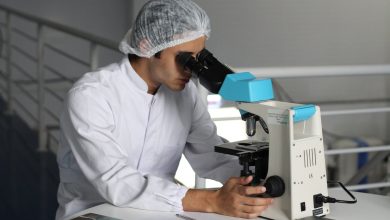How Can IoT Enhance The Healthcare Industry And Help Overcome The COVID-19 Crisis?

The world is fighting against a deadly virus, healthcare officials are working endlessly and giving it their best to prevent the spread of infection and trying to save those who are already infected. In such scenarios, technological innovations are making a huge impact in the healthcare industry. The emergence of new technologies has made the job of healthcare workers as well as patient care much easier. Countries are trying to get their hands on the latest pieces of equipment and deploying state-of-the-art technology to mitigate the outcomes of COVID-19 and contain the virus from being spread.
A brilliant example of that technology would be the Internet of Things (IoT), including other technologies like AI and Cloud, which have benefited the healthcare industry immensely in these difficult times. IoT has also enabled the diagnosis and treatment of patients remotely. It has also facilitated the delivery of modern medicines and other medical types of equipment to isolated areas. Now let’s take a look at a more depth view of what IoT really is and how it has helped the healthcare industry to overcome the COVID-19 crisis.
What is IoT
The Internet of Things (IoT) points out the method of linking regular physical objects to the internet, that is for example, from common household objects like television; to healthcare assets like medical devices; to smart devices and wearables.
IoT implies the technique of physical devices that acquire and transmit data over wireless networks. It is made probable by combining compute devices in all kinds of objects. A specific IoT system, for example, like the smart home conveyed above, operates by constantly transmitting, obtaining, and interpreting data. Relying on the type of IoT technology, analysis can be executed either by humans or artificial intelligence (AI) and machine learning (ML) in real-time or in an extended period of time.
Advantages of IoT in the Healthcare Industry
When we take a look at the advantages that IoT has to offer, there are quite a few.
● Cost Reduction-
This is one of the major advantages of IoT in the health industry. IoT assists in monitoring patients in real-time, hence eliminating unnecessary visits to doctors and hospital stays.
● Faster Disease Diagnosis-
IoT helps in the quick diagnosis of diseases. With real-time monitoring of patients, it can help in diagnosing diseases at an early stage. It also helps in detecting concerns even before the disease develops.
● Proactive Treatment-
24/7 monitoring of patients facilitates in providing proactive treatment.
● Error Reduction-
Data generated through IoT devices guarantees smooth healthcare operations with fewer system costs, waste, and errors.
● Improved Treatment-
It enables doctors to create an accurate decision and bring about absolute transparency.
How IoT Help Overcome the COVID-19 Crisis
The emergence of COVID-19 has taken a huge toll on peoples’ lives and has disrupted the economy altogether. Now, let’s take a look at how IoT has played its part in overcoming the global pandemic crisis.
● Remote Patient Monitoring-
IoT-powered devices enable hospitals and clinics to maintain remote treatments. RPM particularly uses advanced digital technologies to transfer patient data from one source to another. That is, assemble health data from one patient and share the information with healthcare providers in a different location for an additional examination and recommendations.
● Vaccine Cold Chain Monitoring-
Ensuring essential vaccination to the people during COVID-19 has resulted in a quite challenging task in developing countries. To conceivably enhance the vaccine supply chain, IoT and mobile technology have benefited a lot. With the help of IoT sensors and cold chain data loggers convey factual information of condition logs via cellular data networks to the cloud.
● Healthcare Delivery Drones-
If there’s one device that has been confirmed to be a lifeline for the delivery of tests, medicines, and PPE, etc. to remote areas in developing countries, it is the IoT-enabled drones. The drones have also played a functional role in disinfecting public spaces and noticing COVID-linked symptoms.
● Healthcare Management-
Lack of efficient visualization of hospital capability is the reason for inadequate healthcare management in developing countries. One of the examples that can be used is the shortage of bed availability. IoT sensors are positioned under the beds to allow hospital staff to seamlessly determine the beds’ availability. eBMS is an example of a brilliant IoT solution that can provide crucial advice to healthcare stakeholders to support the government ready for future pandemics.
● Assuring Hospital Sanitation-
Sanitation is one of the greatest concerns in hospitals. Cleanliness is a necessity, especially when it comes to assuring the safety of the patients. Disinfecting an area takes a bit of time and it can be quite challenging to secure that the area is genuinely free from contaminants. This is where IoT medical devices come into the picture. They assist the hospital staff to achieve greater standards of sanitation more efficiently and accurately. IoT-connected cleaning robots can also help in disinfecting rooms while hospital workers concentrate on taking care of patients. These machines can warn staff if they detect any concerning trends or pathogens. These deployments enable hospitals to remain as efficient and hygienic as possible.
● Making Healthcare More Convenient-
Telehealth is one particular area in IoT healthcare that has gained a lot of popularity. Organizations can help patients by utilizing different IoT devices like wearables. Adoption of these systems soared throughout the COVID-19 pandemic, as hospital visits became more difficult. Being in a hospital waiting room during a public health emergency places patients in danger of getting infected. With the IoT, they can consult a doctor from their homes, acquiring care without placing themselves at risk.
Conclusion
Today, technology is booming faster than ever. When it comes to the healthcare industry, IoT plays a critical role. IoT technology helps fight COVID-19 effectively and also accelerates the digitalization of healthcare systems. Healthcare industries are trying to get their hands on the latest IoT services for better growth and development. IoT is a fundamental factor of healthcare transformation at present and in the future.




